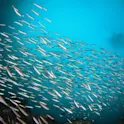Frontiers Communications
Editor
Editor

Impact analysis
28 Jun 2017
With an Impact Factor of 4.298, Frontiers in Plant Science is the 1st most cited Plant Sciences journal in the world.

Frontiers news
28 Jun 2017
With an Impact Factor of 2.323, Frontiers in Psychology is the #1 most-cited Multidisciplinary Psychology journal in the world.

Frontiers news
28 Jun 2017
With an Impact Factor of 6.429, Frontiers in Immunology is the 5th most cited Immunology journal in the world

Life sciences
22 Jun 2017
Japanese scientists develop a new technique to isolate active therapeutic compounds for Alzheimer’s disease from plants.

Health
21 Jun 2017
Article published in Frontiers in Sociology covers issues surrounding the UK National Health Service Patient and Public Involvement Program

Psychology
21 Jun 2017
A study of moral and social attitudes of tennis players has linked these characteristics to direct observations of cheating behavior in match play.

Health
20 Jun 2017
A comprehensive literature review, published in Frontiers in Psychiatry, helps us to understand why childhood trauma leads to an increased risk for psychosis.

Life sciences
19 Jun 2017
Nottingham Biomedical Research Centre, call for professionals in sound-, psychology- or drug-based treatments for tinnitus to participate in an online study.

Frontiers news
15 Jun 2017
New specialty section on Organic Chemistry to be led by Chief Editor, Pr. Iwao Ojima who stresses the importance of a multidisciplinary outlook for his field.

Psychology
14 Jun 2017
Despite a gender imbalance, there is no evidence for gender bias against women in securing tenure-track positions in philosophy — By Conn Hastings Despite being a male-dominated field, a recent study has found no evidence for gender bias against women in philosophy, in terms of securing tenure-track positions as college professors. Good news, but why aren’t there more women in philosophy? Gender imbalance is prevalent in many fields. In the humanities, one discipline stands out for its underrepresentation of women – philosophy. So, why the imbalance? One idea receiving a lot of attention is that subtle forms of prejudice in philosophy departments act to reduce the opportunities for women to advance professionally, and color how people perceive women’s academic credentials. These proposed prejudices include things like unconscious bias, which can affect how someone from a stereotyped minority is perceived, without the explicit awareness of the person assessing them. This could manifest as peers and superiors perceiving women negatively, which might put them at a disadvantage for professional development and advancement. But are there any concrete data to demonstrate that these prejudices are present in philosophy departments, and are the reason for the gender imbalance? Sean Allen-Hermanson, of Florida […]

Frontiers news
14 Jun 2017
Superintelligence: fact or fiction. First Frontiers Spotlight Award Winner for outstanding research into human brain augmentation

Psychology
13 Jun 2017
Study shows girls who grow up exposed to traditionally more masculine interests and role models are more likely to have the aggressive desire to succeed at sport. — By Tania Fitzgeorge-Balfour The ability to produce peak performance plays a decisive role in the success of athletes in competitive sport. A desire to be the best is one of the most important traits in a top athlete, but where does this desire come from – are we born with it or is it a learned characteristic? Traditionally, research on female sporting success has focused on biological and genetic differences. A new study, published in the open-access journal, Frontiers in Psychology, instead looks at the motivation level of successful female footballers and whether their upbringing influences this desire to succeed. “We find that at higher competition levels, the more likely it is for female athletes to savour the more aggressive elements of a sporting contest,” says Danie Meyer-Parlapanis, who conducted this research as part of her PhD thesis with Prof. Roland Weierstall, at the University of Konstanz, Germany. “This is particularly the case when they have been raised in less traditional families and have greater engagement with more masculine interests and role models.” […]

Neuroscience
12 Jun 2017
Using mathematics in a novel way in neuroscience, the Blue Brain Project shows that the brain operates on many dimensions, not just the three dimensions that we are accustomed to

Life sciences
08 Jun 2017
The World’s Oceans are in Crisis but the First UN Meeting on Oceans Brings Hope, article published by Nina Hall for Frontiers in Marine Science

Young Minds
07 Jun 2017
Frontiers for Young Minds takes this one step further, by asking authors to explain their published articles in a language that 8-15 year olds can understand. This is put to the test as kids act as the reviewers. Michelle Juarez, professor at City College of New York, uses Drosophila fruit flies to study questions about wound repair and infection. Early on in her career, she embraced teaching younger students. “During my research training in fruit fly development I learned the joys of teaching younger students. Now in my current job as a Professor, I strive to combine my research and teaching into one environment and help inspire the next generation to use science in their careers.”, she explains. Michelle decided to re-write her article investigating the genes that regulate wound healing processes in skin cells in a way that would be understood by a young audience. The result was then put to the test by the Young Reviewers from the Metropolitan School of Panama. Kids can be the toughest critics, with most admitting they got lost early on. What holds the interest of a scientist might not be the best way to engage a younger audience. The kids were intrigued […]
Get the latest research updates, subscribe to our newsletter